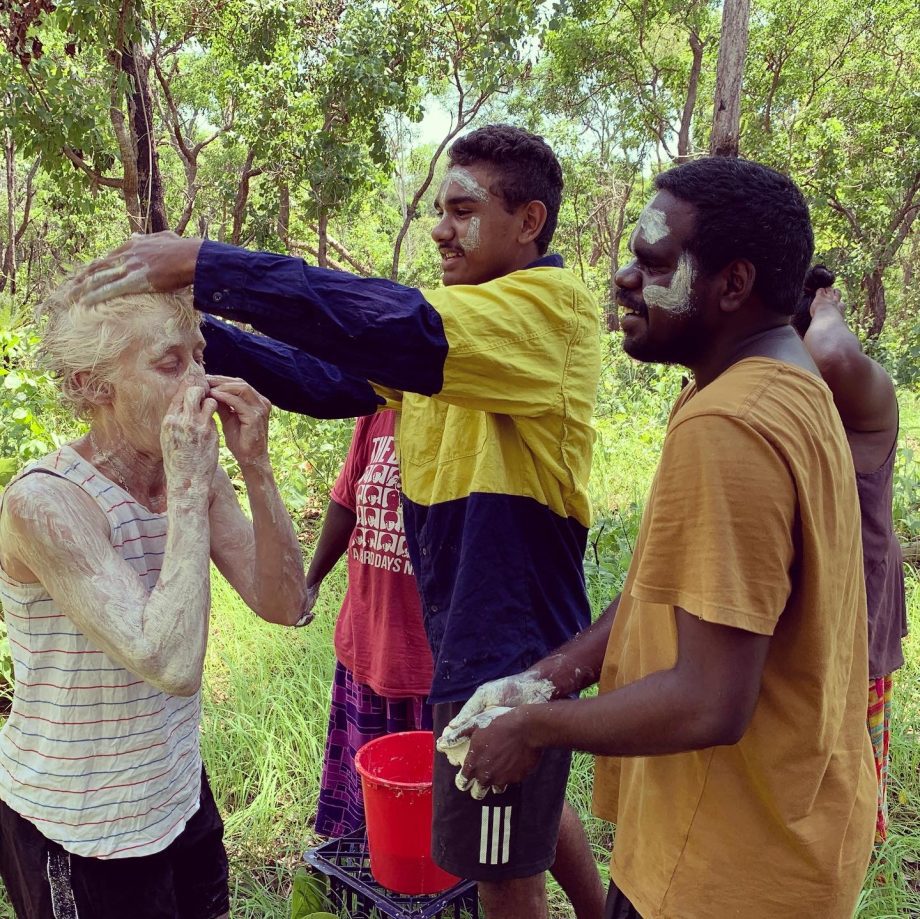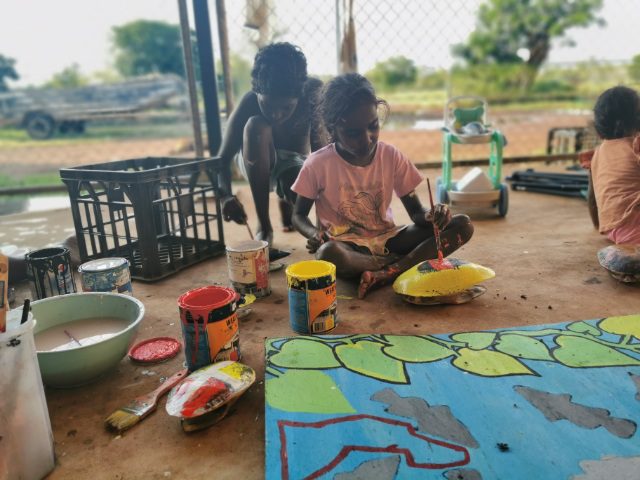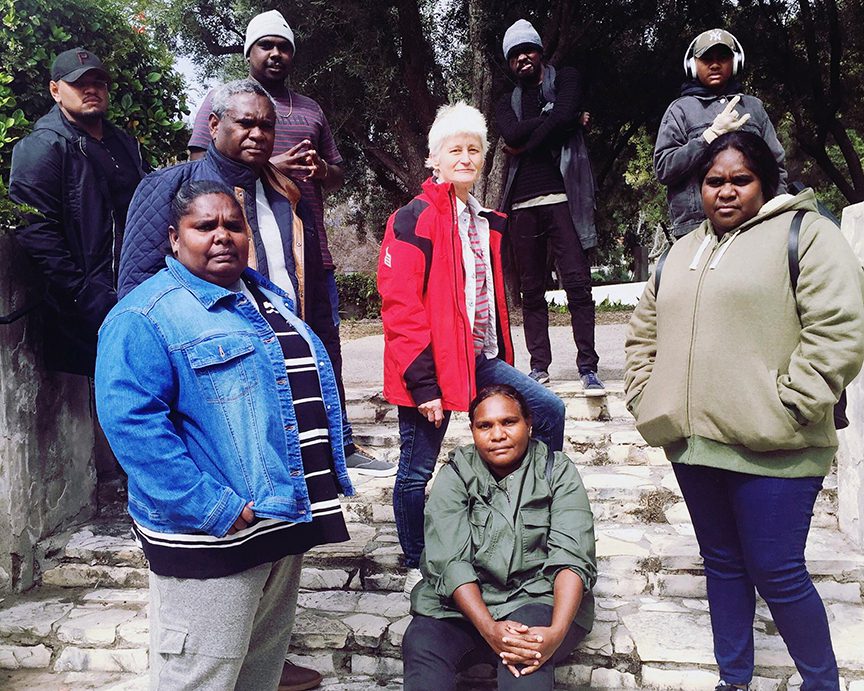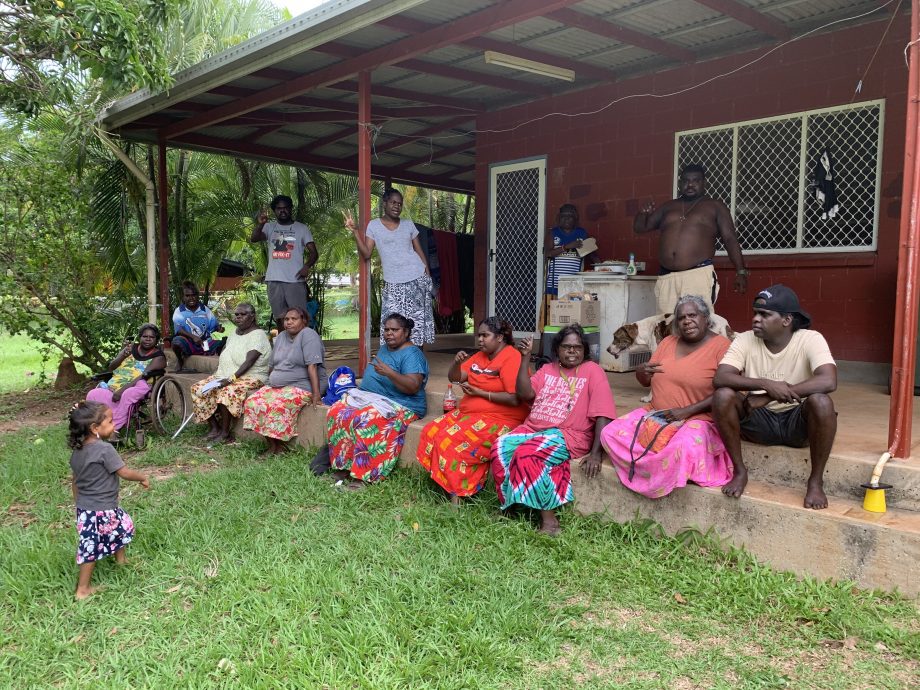Karrabing Film Collective & Elizabeth Povinelli
Karrabing Film Collective
Belyuen, Australia · Cinema

Courtesy Karrabing Film Collective.
The 2021 Afield Fellowship is awarded to Karrabing Film Collective, a media group (represented by professor, filmmaker and artist Elizabeth Povinelli) that uses filmmaking and installation as a form of Indigenous grassroots resistance and self-organization in their coastal lands in the Top End of the Northern Territory, Australia.
Karrabing meaning low tide in the Emmiyengal language, refers to a form of collectivity outside of government-imposed restrictions of clanship or land ownership. The Karrabing is working with multiple governmental and nongovernmental agencies to reconceptualize how the spiritual, ecological, and historical elements of their lands connect to each other.
Shot on handheld cameras and phones, most of Karrabing’s films dramatize and satirize the daily scenarios and obstacles that collective members face in their various interactions with corporate and state entities. Using an improvisational realism that opens a space beyond binaries of the fictional and the documentary, the past and the present, Karrabing exposes and intervenes into the longstanding facets of colonial violence that impact members directly, such as environmental devastation, land restrictions, and economic exploitation.
The fellowship grant will be allocated to the Karrabing Art Residency for Ancestors (KARA), an ecologically sustainable residence not only for the creation of films and art works, but more importantly for an open-air gallery whose primary audiences are their ancestral totems and relatives.
KARA seeks long-term goals that include the protection of totemic and historical geography of the south side of the Anson Bay, Northern Territory, the establishment of an Arts and Sea Rangers program to monitor the ecological and ancestral health of the region and the creation of four to five residences including one for art residencies and curatorial conversations and projects.

Courtesy Karrabing Film Collective.

Courtesy Karrabing Film Collective.
Elizabeth Povinelli is a Franz Boas Professor of Anthropology and Gender Studies at Columbia University, New York; Corresponding Fellow of the Australian Academy for the Humanities; and a founding member of the Karrabing Film Collective. As assigned director, editor, and public officer, she helps to organize ideas, interests and visions generated from within the collective in a way that amplifies their voices, circulates their vision, and accumulates social and financial values for the group, making sure to not presuppose authorship over the artistic production or circulation.
The Karrabing Film Collective started with about thirty Indigenous men and women from the Anson Bay region of the Northern Territory. Today they engage over 100 Indigenous men, women, and children on land-oriented projects every year, including the construction of a bush track to ancestral lands on the south side of the Anson Bay where the Art Residency for Ancestors will be located.
The film collective acts as a tool to amplify the voice of the collective, circulate their vision and accumulate social and financial resources for the community. Karrabing has therefore produced eight creative nonfiction/fiction films, five short commissioned films, and a series of installations accompanying screenings in multiple galleries, biennales, and film festivals throughout the world. Their works have been acquired by private foundations and they have acquired ten passports for Indigenous Karrabing members which has allowed them to travel and present their work and vision globally as well as nationally.

Karrabing Film Collective - Elizabeth Povinelli AFIELD Fellow 2021

Courtesy Karrabing Film Collective.

Courtesy Karrabing Film Collective.
